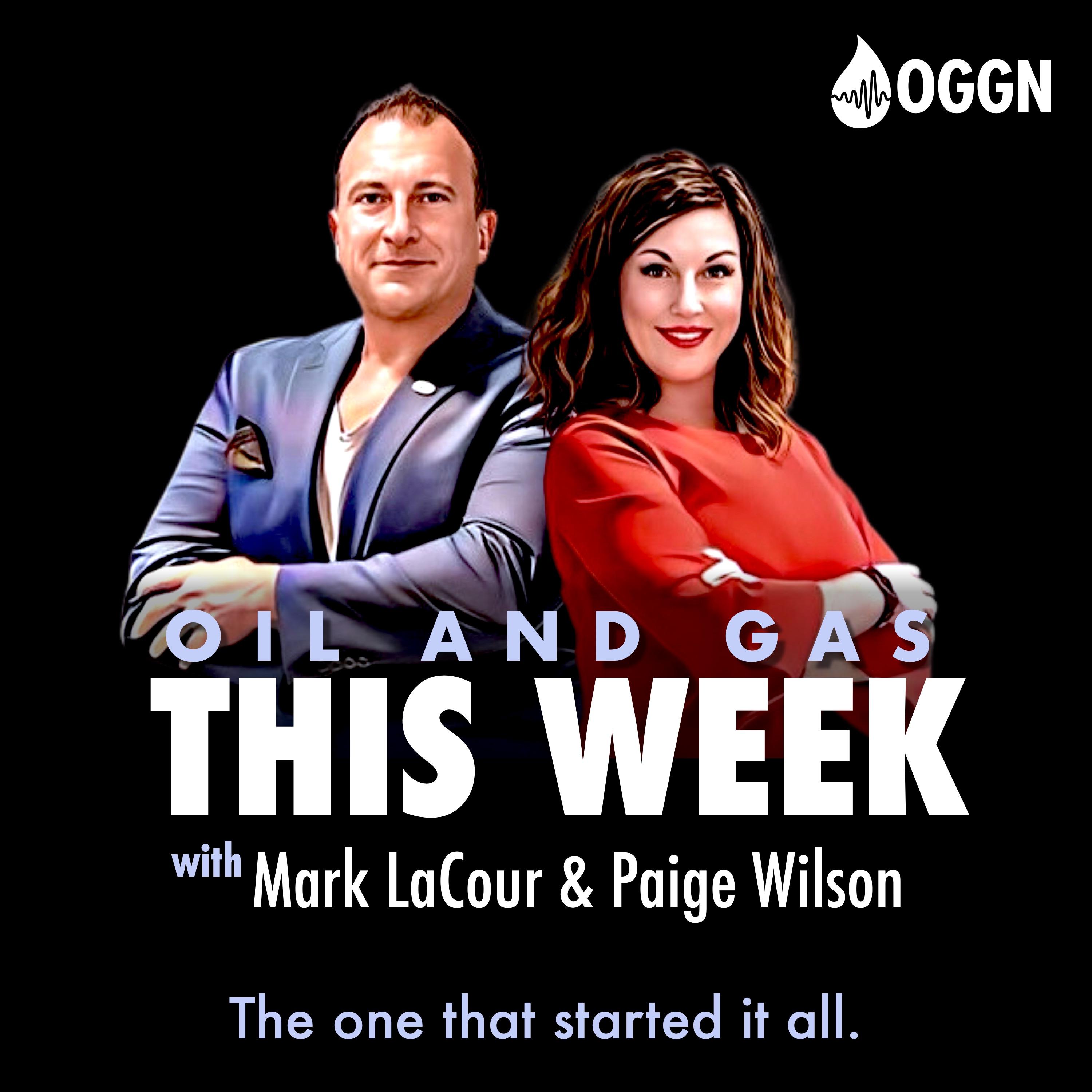.png)
The Crude Cast
Welcome to The Crude Cast, the podcast that takes you behind the scenes of the oil and gas industry. Whether you're a seasoned professional or exploring the industry for the first time, our podcast offers a unique window into the diverse roles, challenges, and opportunities within this dynamic field.
In each episode, we dive deep into:
- Expert Interviews: Conversations with industry leaders, innovators, and experts who share their knowledge and experiences on effective communication, teamwork, and leadership.
- Real-World Stories: Relatable accounts from the field that highlight the essential soft skills needed to thrive in the oil and gas sector.
- Educational Insights: Practical advice and strategies for improving collaboration, navigating tough conversations, and fostering a positive work environment.
- Industry Exploration: Discover the varied and often overlooked roles within the industry, and gain insights into how each contributes to the broader picture.
Our mission is to educate, inspire, and entertain by showcasing the people and processes that make the oil and gas industry tick. Whether you're looking to sharpen your skills, learn about new opportunities, or simply enjoy engaging stories, The Crude Cast has something for you.
Subscribe and join us on this journey as we uncover the rich tapestry of the oil and gas world, one story at a time.
The Crude Cast
Ep.#13 - Discretion: What it Means in the Oil and Gas Industry
Welcome to "Discretion: What it Means in the Oil and Gas Industry," where we unravel the hidden language of safety in the oil and gas industry! 🛢️💬
Are you curious about the vital role discretion plays beyond safety protocols? Join us as we explore the nuances of discretion, navigating through the secrets of where we drill, proprietary technologies, and safeguarding vital information.
Stay tuned to uncover the essential facets of discretion in training, hazard reporting, social media, industrial incidents, and the delicate handling of co-workers' and personal information. Discretion isn't just confidentiality; it's the backbone of a safety-first culture.
Listen, engage, and embark on a journey to master the art of discretion in industrial safety. 🎙️🔒
Visit:
🌐 www.crudecommunication.com
📺 www.youtube.com/@crudecommunication
💼 www.linkedin.com/in/travismcc
📖 Buy Crude Communication on Amazon
Send us a voice mail HERE!
Support the show for as little as 3$!
Discretion: What it Means in the Oil and Gas Industry
Safety in the industrial sector is paramount to protect workers and maintain the smooth operation of industries. However, achieving a safe work environment goes beyond implementing safety regulations and protocols. Discretion, the ability to handle sensitive information and make informed decisions, plays a significant role in maintaining industrial safety. Let's explore the importance of discretion and how it can enhance workplace safety in industrial settings.
In a close-knit industry, discretion can mean many different things. We are not only talking about risky behavior not shared with a supervisor. We are talking about such things as protecting processes and procedures. Where we drill, what assets we buy, or how we deploy technology all affect the way we manage culture and optimize resources.
Many areas, from the Wellhead to the tanker, thrive on their trade secrets, technological advancements, and proprietary information. Discretion is vital in safeguarding these secrets, preventing unauthorized dissemination of information, and protecting intellectual property. Companies should implement strict confidentiality protocols and train employees on the importance of discretion when handling sensitive information. “This isn't something we need to share outside the company,” The manager prefaces again. When talking about the results of a new drilling campaign.
By ensuring that only authorized individuals have access to valuable data, we can mitigate the risk of leakage, espionage, and accidents. Are you being denied access from certain folders on your company's server? You may be wandering the halls, trying to get into the chemistry lab. It's best to leave that door locked.
Keep reading to learn how discretion plays a vital role in the oil and gas industry.
What Different Facets of the Oil and Gas Industry Require Discretion?
Training and Education
Discretion plays a crucial role in training and educating employees. We have to train employees to interact with the products we are producing, which could be hazardous, depending on how they are produced. Do we have a thorough training manual that could be shared, compromising our production methods? Organizations should avoid publicizing sensitive information that could potentially be exploited by competitors or nefarious actors. What is your advantage in the market? Is it your engineering? Chemical processing methods? Material science? By embracing discretion, companies can ensure that their training programs focus on the necessary skills and knowledge to enhance industrial safety without compromising their unique strategies and approaches.
Hazard Reporting
Creating a culture of discretion is essential when it comes to reporting hazards in the workplace. Employees should feel confident that their reports will be handled confidentially without risking their personal or professional reputation. When the safety report comes out, you may know what it is only because it was in your group, but would others know? By assuring anonymity and confidentiality, organizations can encourage employees to report potential safety hazards without fear of retaliation. This discretion enables prompt action to be taken, addressing safety concerns before they escalate into more significant incidents, and fosters a proactive safety culture, ultimately enhancing industrial safety.
Social Media
Now, with social media and immediate access to reporting devices (cell phones), we are able to take a picture of something and report it to our maintenance crew and ask for advice. However, a drilling hand might take a picture of the oil coming across the shakers, sharing, “We hit a good one!” For better or worse, love the enthusiasm; however, let's use more discretion. Information shared without context can be an uphill battle that can usually end back at your doorstep.
Industrial incidents
In the event of an industrial incident, discretion becomes crucial in managing the flow of information efficiently. Accidents can attract public attention, media scrutiny, and legal implications. It is vital to handle incident management discreetly, considering the welfare of the affected individuals and protecting the reputation of the organization. By following strict protocols, such as limiting the release of information to authorized spokespersons and maintaining open communication within the organization, transparency can be balanced with discretion. The fact is, sometimes, we don't know all the details regarding an industrial incident. This approach prevents the spread of misinformation, minimizes panic, and allows for a focused investigation, leading to improved safety measures and preventing future incidents.
Discretion is important to any oil and gas operation in any area. Having trust and knowing how and when to manage discretion will make you an invaluable employee.
Co-Workers’ Information
When you work in close contact with employees, you will undoubtedly find their personal, information around. They are signing documents to send back to their wife, their lawyer, or printing papers that are being provided to regulators. Your discretion in keeping private what needs to stay private is important. Did you find a paper lying around? Consider finding that person and asking, “Do you need this, or can I shred it for you.”
Personal Information
In the age of advanced technology and digital connectivity, protecting personal information is crucial. Discretion is vital when managing employee records, medical information, and other personal details. Employers must implement robust data privacy measures, restrict access to sensitive information, and educate employees on the importance of discretion regarding personal data. By safeguarding personal privacy, companies can establish trust with their employees, fostering a positive working environment that supports industrial safety.
Conclusion
In summary, discretion is a fundamental aspect of achieving and maintaining industrial safety. By protecting trade secrets, ensuring confidentiality in reporting hazards and incident management, safeguarding personal information, and exercising discretion in training, organizations can create a culture that prioritizes safety.
Discretion enables effective risk management and establishes trust between employers and employees, fostering a safe and productive working environment. Ultimately, by integrating and promoting discretion in industrial safety practices, companies can maximize the well-being of their employees, mitigate risks, and enhance overall safety performance.
#safety #crudecommunication #thecrudecast #oilfieldcommunication #oilandgastraining
Podcasts we love
Check out these other fine podcasts recommended by us, not an algorithm.

Oil and Gas This Week
Mark LaCour & Paige Wilson
Barn Talk
Tork and Sawyer Whisler
Markley, van Camp and Robbins
Alpha Media
Fresh Cut Grass
Penn State Extension
The Rick Shiels Golf Show
Rick Shiels, Guy Charnock
Truth For Life Daily Program
letters@truthforlife.org (Alistair Begg)
Bellied Up
You Betcha Guy & Charlie Berens
